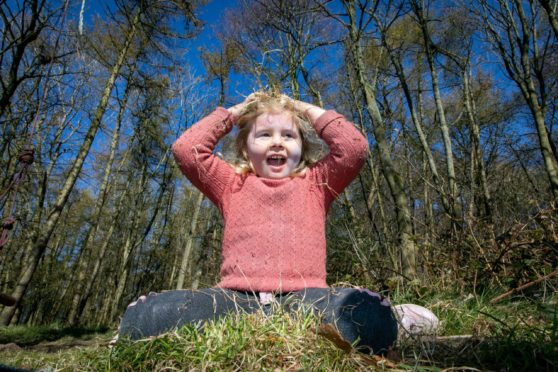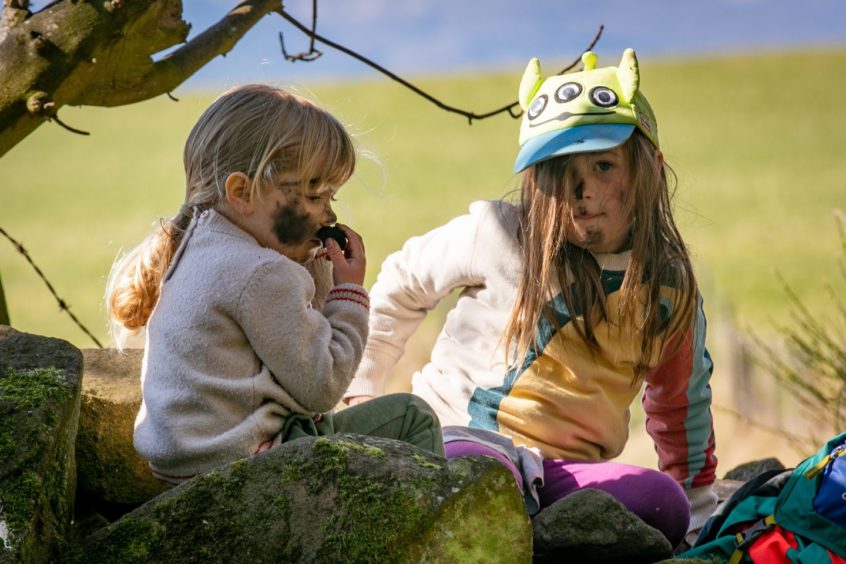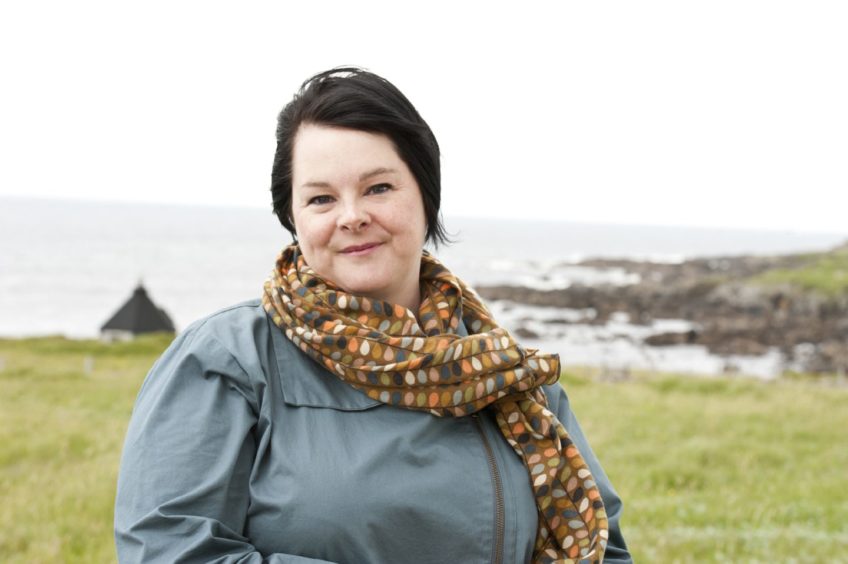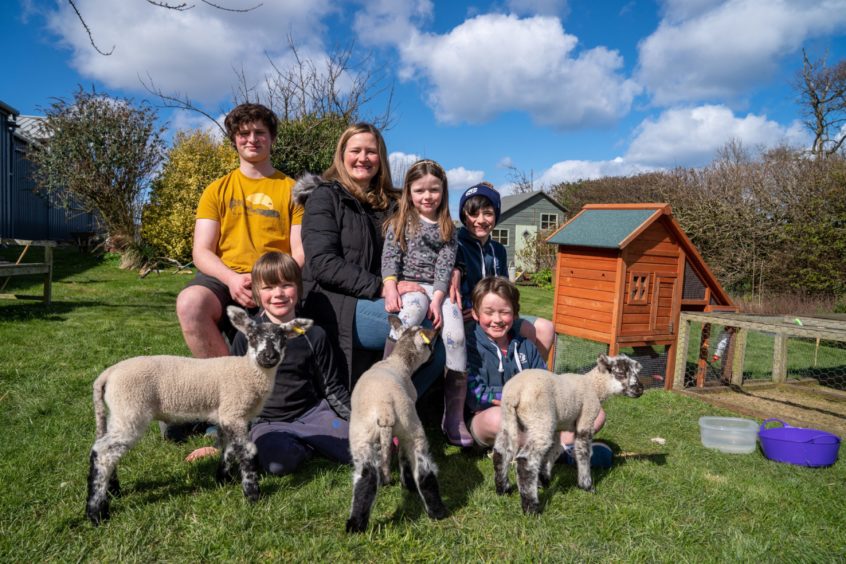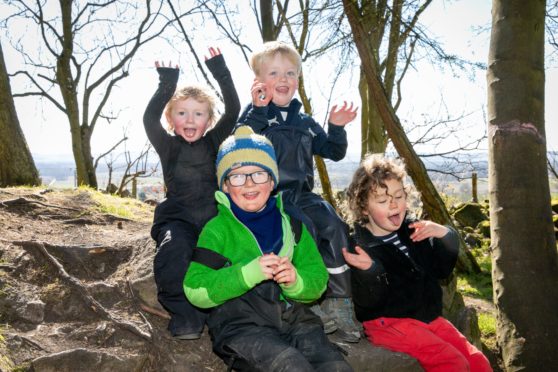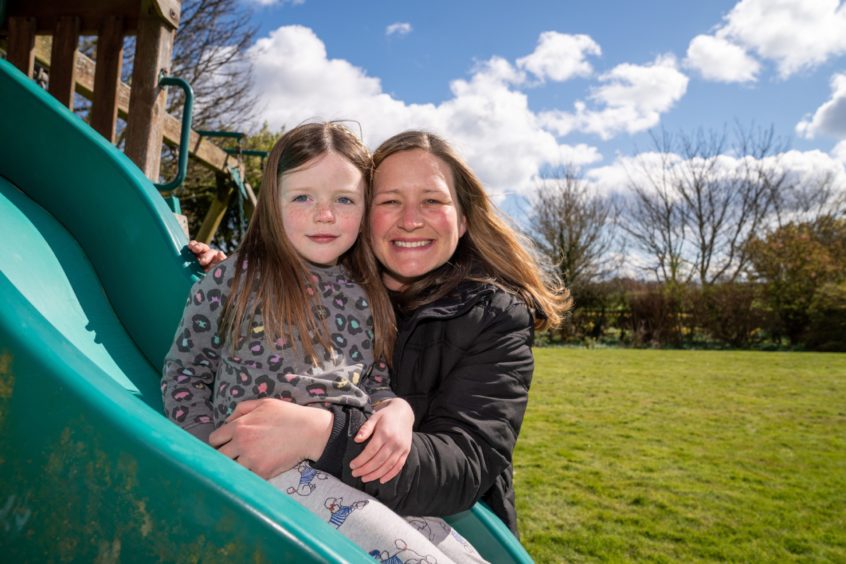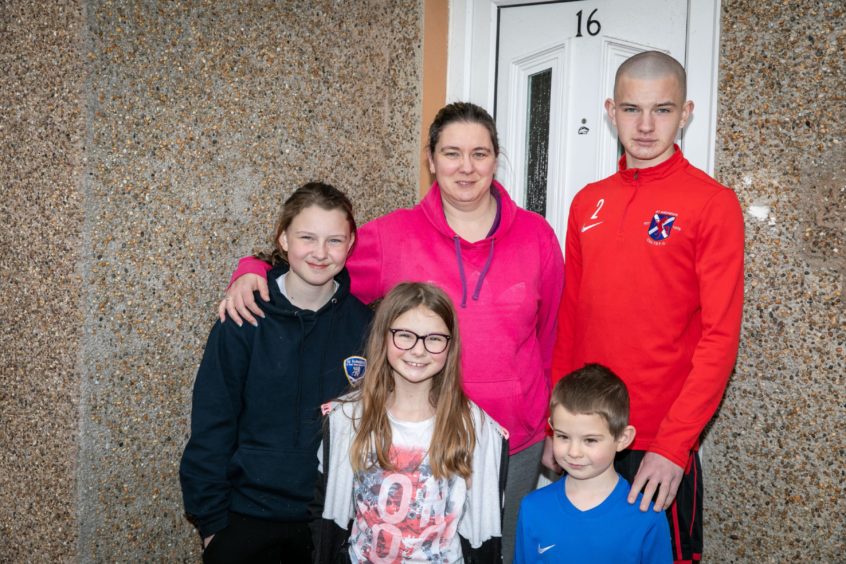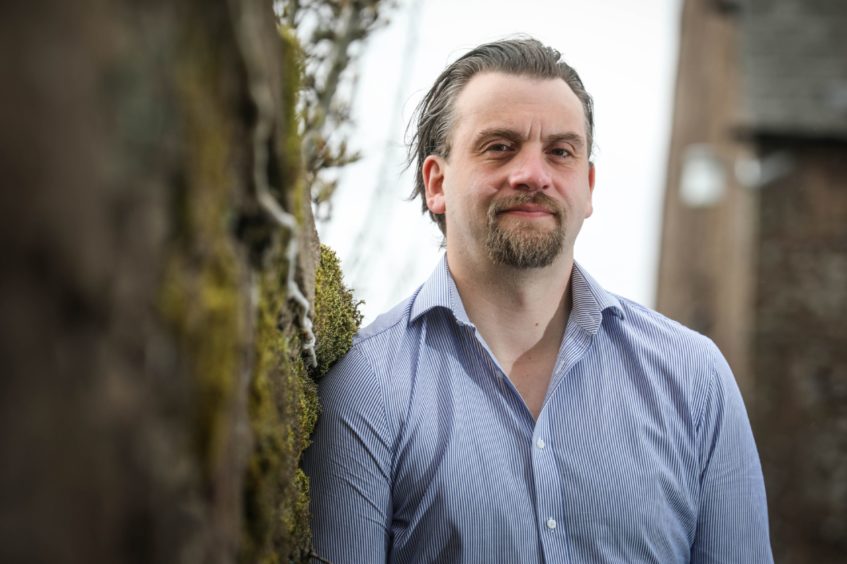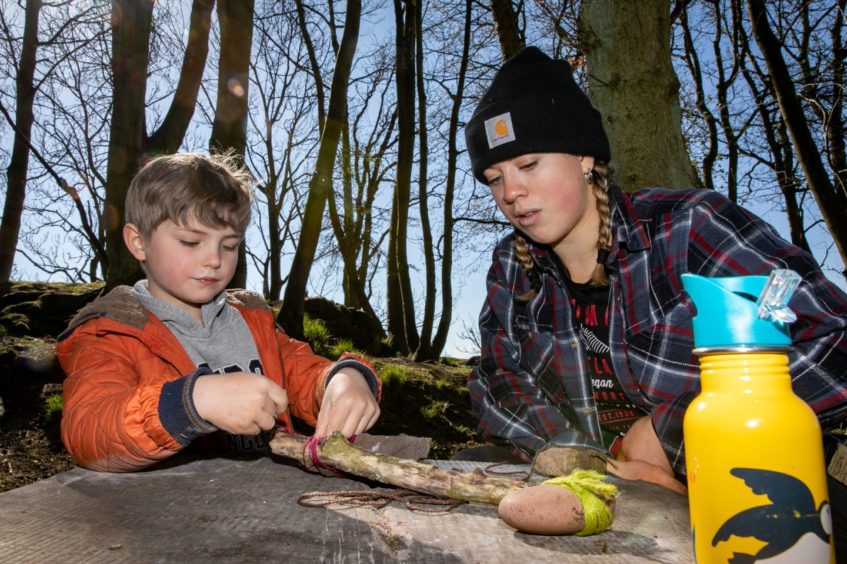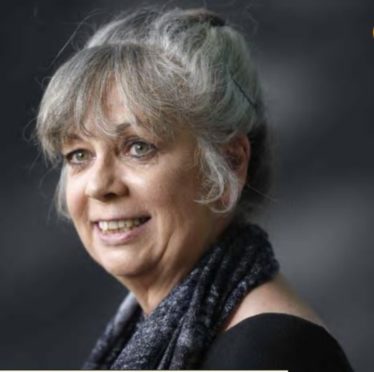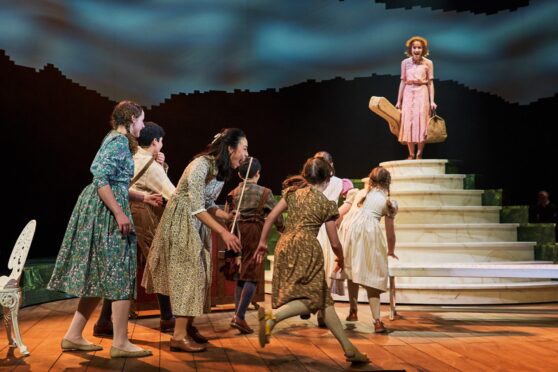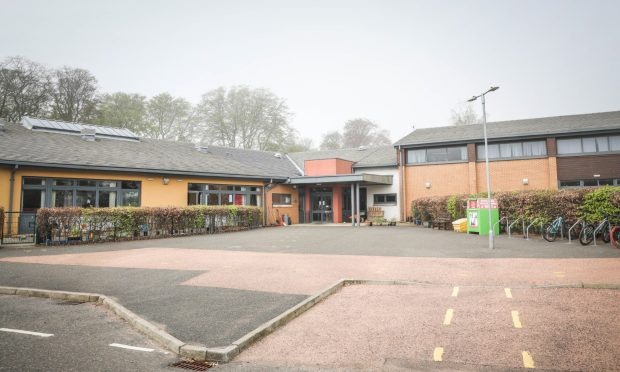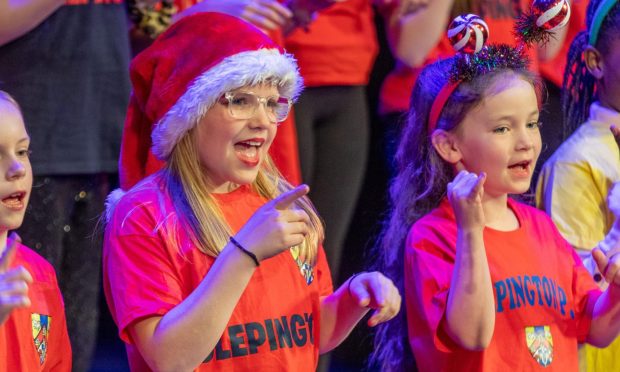At the age of four or five children in Scotland take their first footsteps into the classroom.
But that could be about to change after delegates at the SNP conference in Aberdeen this week voted in favour of a new policy to increase the formal school starting age to six.
A resolution, led by the party’s policy development convener Toni Giugliano, called on the Scottish Government to raise the school starting age and introduce a universal play-based kindergarten stage.
Kindergarten education would be aimed at three to six-year-olds, echoing successful Nordic kindergartens, particularly those in Finland who start school at the age of seven.
A Scottish Government spokesman said the policy “will form part of our ongoing national discussion on education”.
Both the Scottish Liberal Democrats and Scottish Greens called for the primary school starting age to be changed, in 2021.
And continued campaigning from groups such as Give Them Time and Upstart Scotland has long kept the issue at the forefront of education policy discussions.
Below, we look at the arguments for and against raising the primary school starting age in Scotland.
Increased primary school starting age would allow children to ‘have a childhood’
Campaigners argue that replacing our current primary one and two years with a kindergarten stage would allow children to ‘have a childhood’, in a world where outdoor play has been replaced by technology.
Sue Palmer, chairwoman at Upstart Scotland, said: “We need to let go of the idea of holding back and think of it as the bones of childhood, it’s such a short time in their life where they get to play.
“There is a biological necessity to play, learn through play, deepen yourself, build self-regulation skills, resilience and develop social skills.
“That part of childhood is precious and too many are not getting it because they’re stuck inside all the time behind screens or worksheets.”
A more ‘level playing field’
Sue, and others who back the campaign, believe this informal learning environment to be more supportive of young children’s emotional needs and future mental health.
And they say the delay in starting formal literacy and numeracy teaching provides time for a more level playing field in terms of each child’s development.
Sue said: “Some kids are ready at five, and some aren’t, and the more we push them, the more resistant they can become.
“The kids who come from literacy rich homes and are lucky enough to have the right mind will flourish, but there are many who don’t.”
She says that, like in Finland, if a child showed an interest in reading then literacy materials would be available, but there would be no structured support with that until the age of seven.
Opposing views
Critics believe using this approach in Scotland would actually widen the attainment gap and restrict children from the poorest communities from excelling in numeracy and literacy.
Anne Glennie, a literacy consultant who trains teachers in Scotland to deliver a phonics-based literacy education, and a former teacher herself, says the campaign is ‘flawed’.
Anne said: “The Upstart flavour of kindergarten is promoting that it’s only children who show an interest in reading who would be taught to read.
“It puts the onus on the child which is extremely unfair. It would be the children who get bedtime stories and have books at home who show an interest in learning.
“But who would appear uninterested in reading? It would be the children who don’t have books at home.
“Or children who find reading difficult because of issues such as dyslexia may not show an interest in reading because it’s difficult for them.”
Anne says that by the age of seven many children would have already decided reading is ‘not for them’ – most likely children from disadvantaged backgrounds — creating a gap which was ‘impossible to mend’, she says, particularly for those with learning difficulties such as dyslexia, who require early intervention.
Anne recognises the importance of learning though play – as has the Scottish Government in recent years – but insists a balance between that and structured teaching is necessary.
It is a balance which teachers in infant years of primary schools are currently trying to juggle, as more play-based learning has been introduced into the curriculum.
However, controversial literacy and numeracy standardised assessments in primary one remain, adding fuel to the fire for those calling for change.
What do parents think of the proposed age change?
Mum-of-five Catriona Stevens, 42, whose eldest is 16 and youngest is six, says there is now a ‘huge void’ between school and nursery, following the government’s creation of child-led nurseries.
Catriona, from St Andrews, Fife, said: “There’s no structure to nurseries now, but the school day does have periods where they have to sit and listen and stay still – and some of them can’t do that because they’ve never learned it.”
She thinks there should be some form of “bridging gap” and therefore agrees with the campaign for a kindergarten instead of current primary one and two years.
She said: “Two of my children I deferred their entry into school – my eldest and my youngest.
“They were both shy and I wanted them to thrive, not just survive. My youngest, Mirren, is in P1 now and what a difference it made to her.
“Now she’s ready to learn, instead of fidgeting all the time and getting up to play.”
Putting the campaign into practice
In her final nursery year – the year she was due to start school – Mirren attended the Secret Garden Outdoor Nursery, in Letham, Fife.
Focusing on outdoor learning and play, this nursery puts many of Upstart Scotland’s beliefs into practice.
Video: Nursery manager Sarah Latto on delaying school
Sarah Latto, the nursery’s care manager and trustee of the campaign, said: “From what we see here at Secret Garden is for the children who do stay on another year, they’re very much still in their body learning.
“In terms of child development, you learn a lot through your body and you have to physically move and physically explore things before you can learn the fine motor skills to hold a pencil and to start to write.”
Catriona says that through her experience at the outdoor nursery, Mirren learned how to play in a different, more imaginative way.
She thinks it is a tool all children should be encouraged to gain, along with the opportunity to experience the outdoors at a young age.
But crucially Catriona believes that a later school starting age would provide extra time for children to mature, in preparation for a structured learning environment.
She said: “For Mirren it made her more mature and able to see what she needed, rather than waiting to see what adults say.
“She was only four-and-a-half when she was supposed to start and I had visions of her not being able to cope with things like going to the toilet, or what if she can’t open up her dinner?
“Just by being one year older it gave her the confidence to risk assess and make decisions – it can only help develop them, their personalities and experiences.”
Not everyone agrees with the age raise
Jillian Guthrie, 40, is of the opposite opinion and thinks an early school starting age helps with children’s development.
The mum-of-four from Guardbridge, Fife, said: “I don’t see any benefit in raising it from five to seven, I think that could lead to issues.
“I think the age they start at now is a good idea, all of mine started at five or thereabouts.
“My youngest was the one I was worried about most because he was very clingy but it really helped his development, especially his social side.
“He might have been older and more able to understand if he had started later or it could have been a lot more difficult and where would we have gone from there?”
Jillian supports the flexibility of the current system in Scotland, which allows parents to defer their child’s school start by one year, or repeat a year.
But says she would be against a blanket rule delaying the starting age to seven for all children.
She said: “Three of my children only had one-and-a-half years of nursery, and the other two had two years.
“By the time the ones who’d had two years were going to school, they were really needing it.
“They were getting bored at nursery and needed more. They were doing the basics of drawing pictures and writing but they were looking for more.
“They learn so much and take it in easier at an early age and to keep them away from structured school learning until seven, when they are ready for it, they would be so bored.”
Different levels of development
Jonathan Marshall, 39, disagrees and says that not all children are ready to learn in a structured environment at the age of five.
And his views are backed by the Upstart Scotland campaign, which argues that the later starting age allows time for a more equal level of child development.
Dad-of-two, Jonathan, from Brechin, said: “My son, Nils, is nine now and I think he’s the sort of child who would have benefited from an intermediate stage between nursery and primary school.
“He’s very much a learning-from-doing-stuff type and is good at activities but if he is pulled down from that and asked to do a workbook then he struggles.
“They sort of try to do it in P1 but there’s still this formal aspect to it.
“It’s very bitty – they need to pick one way or the other and go full blooded at it, rather than doing bits of this and that, with a fear of straying too far from what was done in the past.”
Jonathan’s mum was brought up in Norway where children do have a kindergarten-type intermediate phase, followed by a school starting age of six or seven.
They need to pick one way or the other and go full blooded at it.”
Dad Jonathan Marshall
While he is in support of that type of education structure, Jonathan recognises the challenges it could present here.
He said: “There will always be some parents who want to push their child forward and there would have to be a structure that would support those children.
“Equally there would be some children whose parents do not have the time or the inclination to do that and we would have to make sure that was not to the child’s disadvantage.
“We already have that situation. It’s become obvious through lockdown how much parents wanted to be involved, and that is something that has to be looked at separately.
“For most children it would provide a less pressured way of learning. A way in which they do not have to sit down and formally do stuff and behave a certain way.”
Focus on relationships
Jonathan thinks an intermediate stage would help children understand authority in more accessible way, particularly children from disadvantaged backgrounds.
He said: “Kids who fall into that category would hugely benefit from a later start.
“It would help them learn how to establish relationships and bonds with teachers in a safe place where they could focus on the boundaries of an authoritative figure, without the other restraints of a formal classroom.”
Jonathan’s views on this are backed by those behind the campaign, but they also believe that peer relationships are of the utmost importance in a kindergarten stage.
Sue Palmer, chairwoman of Upstart Scotland, said: “By having all the children together, in an outdoor or active play situation, the younger kids learn from the older ones.
“And the older kids lead the younger ones – it’s beneficial to everyone and develops their emotional resilience.
“It doesn’t sit naturally with us in the UK because we have done it this way for so long but over the last 30 years or so outdoor play has disappeared.
“We’re so busy trying to make them learn, that we’re forgetting to give them a childhood.”
We’re so busy trying to make them learn, that we’re forgetting to give them a childhood.”
Sue Palmer, chairwoman of Upstart Scotland
While there is no official link between a decline in outdoor play and an increase in diagnosed behavioural or mental health issues in children, Sue believes the two are intertwined.
She said: “All developmental disorders have increased as play has declined. I can’t say there is a causal connection but mental issues have increased as childhood has declined.
“Play knocks the corners off. It’s how you find your own way and test the things you are able to do.
“We define it as taking place in pre-school years but it’s an endless process and critical tool to help prepare you for life.”
Sue, a literacy specialist and former primary school head teacher, developed Upstart’s campaign inspired by a visit to Finland where she was “desperately impressed” with their kindergarten.
She claims that despite not starting to read or write until seven, by the age of 10 youngsters in Finland match literacy levels of our 10-year-olds who started much earlier.
But critics of the Upstart campaign say huge differences between Scotland and Finland make the two countries incomparable.
Literacy consultant Anne Glennie said: “Finland doesn’t have the big poverty gap that Scotland does, and the significant differences between disadvantaged children and their most advantaged peers.
“There are many socioeconomic factors which makes the two countries entirely different and we cannot compare the two in this way.
“Parents tend to be better educated in Finland and generally they have a more educated workforce.
It takes us those infant years in P1-3 to start to master the basics of reading and spelling.”
Anne Glennie, literacy consultant
“The biggest difference, however, is the language. Children in Finland are reading Finnish which is the easiest alphabetic language in the world. It’s one letter, one sound — whereas English is so complex that it can be up to two-and-a-half times longer to learn.
“That’s why it takes us those infant years in P1-3 to start to master the basics of reading and spelling.”
What do you think?
We want to hear from other parents about whether four or five is a good age for children to start school or whether the classroom can wait another couple of years.
Take part in our poll or email schoolsandfamily@thecourier.co.uk to tell us what you think.
THE DEBATE: Hear parents have their say on the advantages and disadvantages of starting school older.
